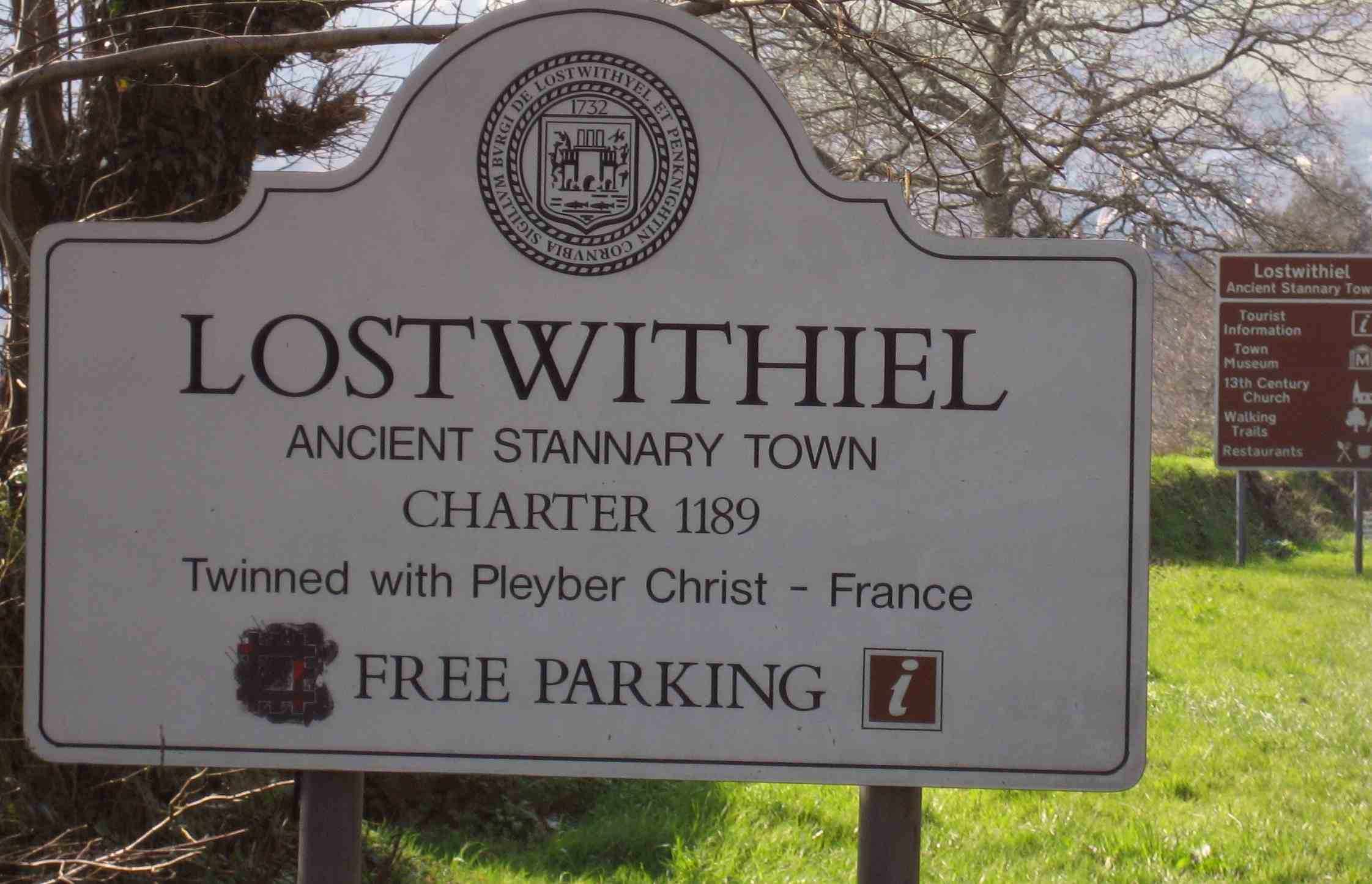 |
|
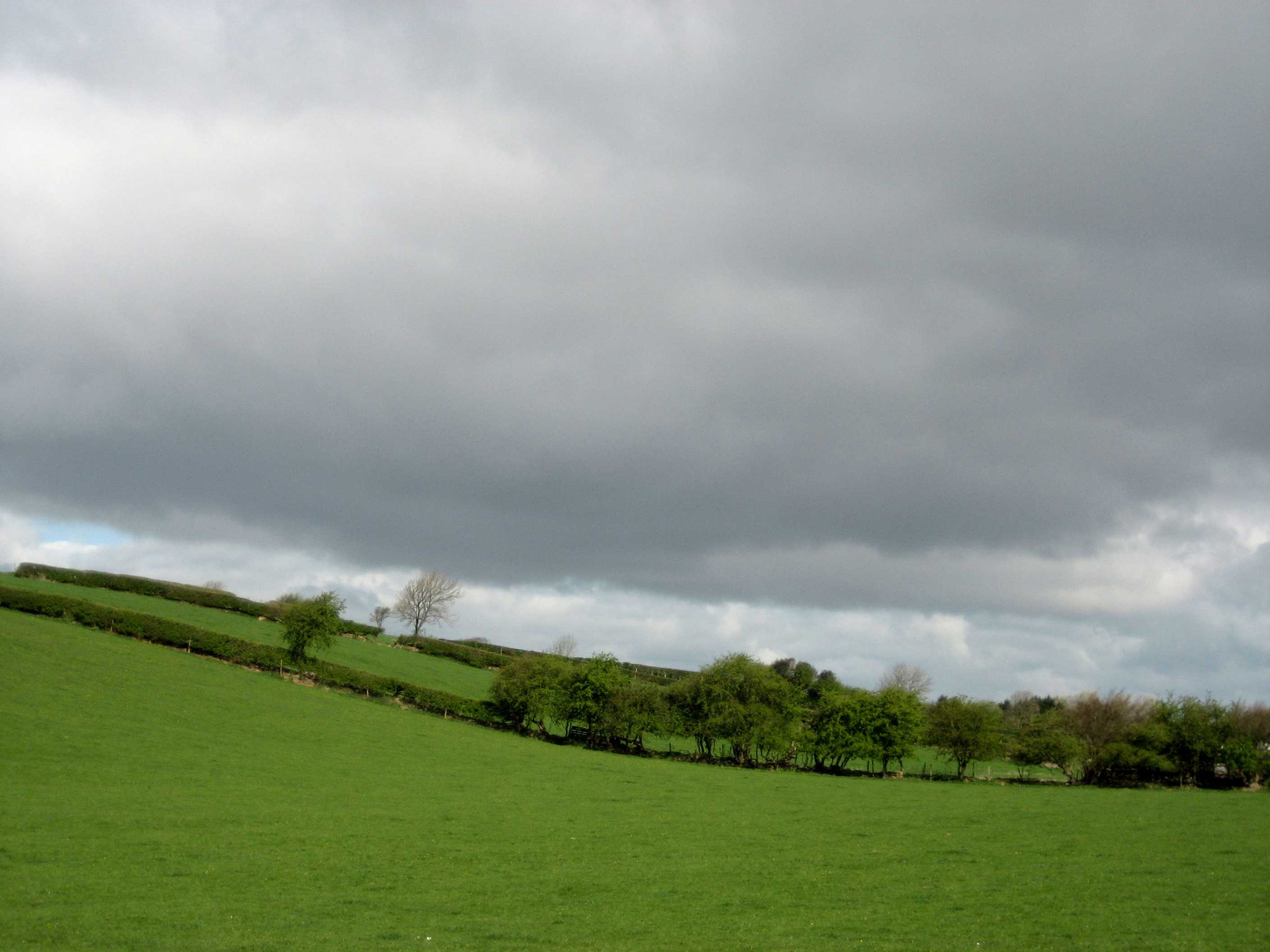 |
|
| Days N1 - N14 English West Country | |
|
Northbound Home Start hiking here English West Country English Midlands North of England Southern Scotland Central Scotland Scottish Highlands Southbound Home |
Time of arrival: 4.15 pm Place departed: St. Austell, Cornwall Place arrived: West Taphouse (east of Lostwithiel, Cornwall) Miles: 12.6 Cum miles: 71.5 Percent complete: 7.7  Cross Close House,
West Taphouse *** Cross Close House,
West Taphouse ***Cost for bed and breakfast: £25 ($50) |
| Overview of both
hikes Excerpts Statistics What others say Acknowledgments Contact me Copyright Links |
|
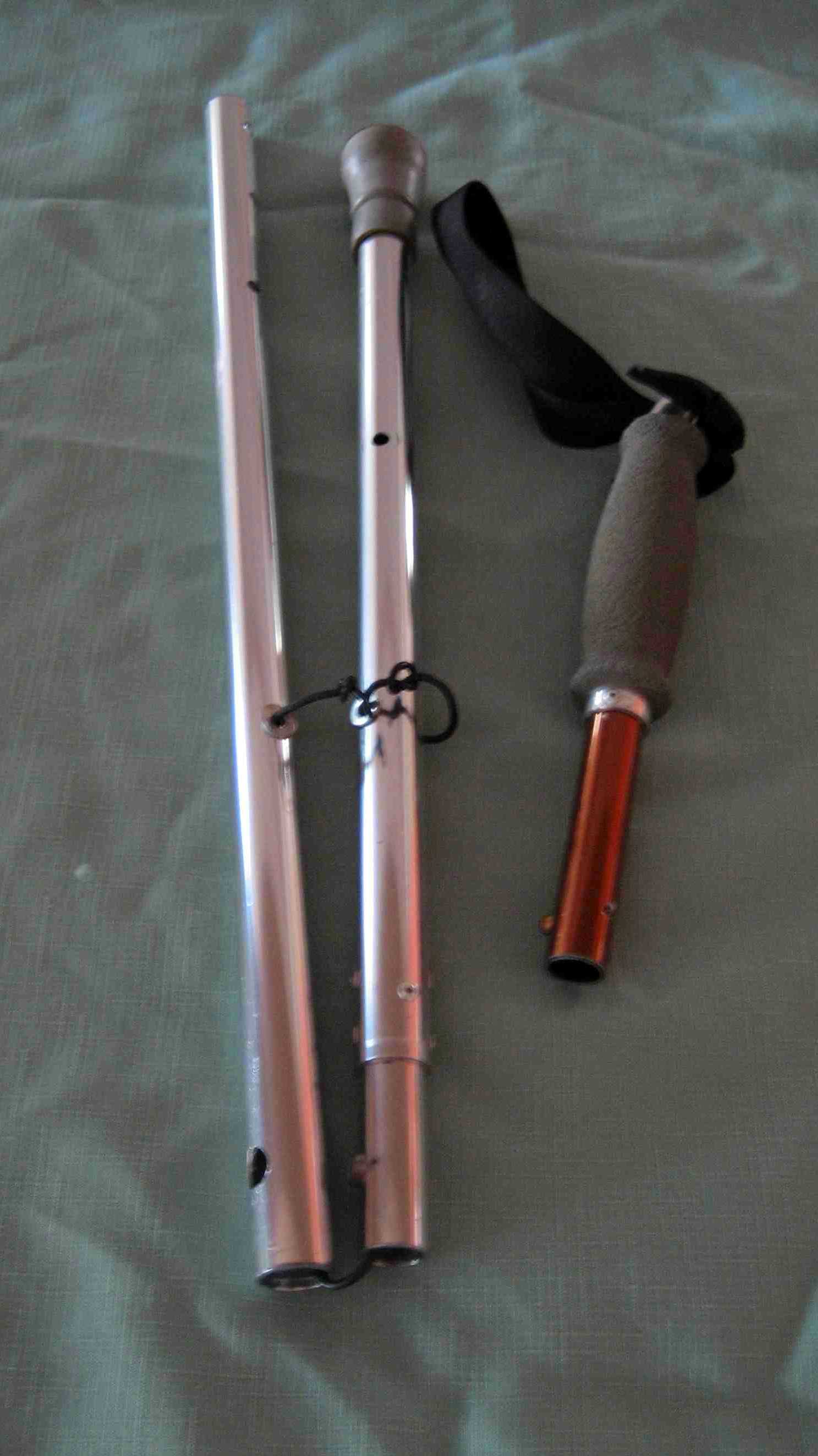 |
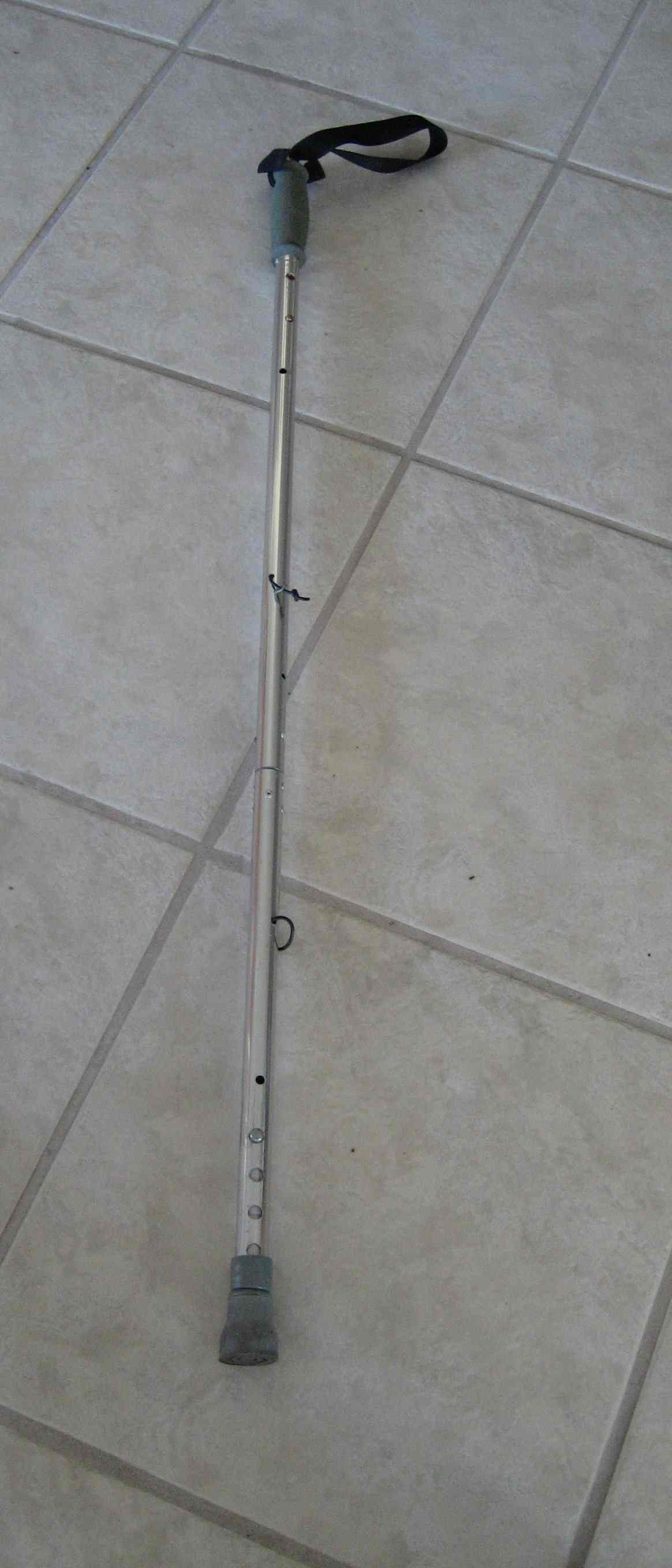 |
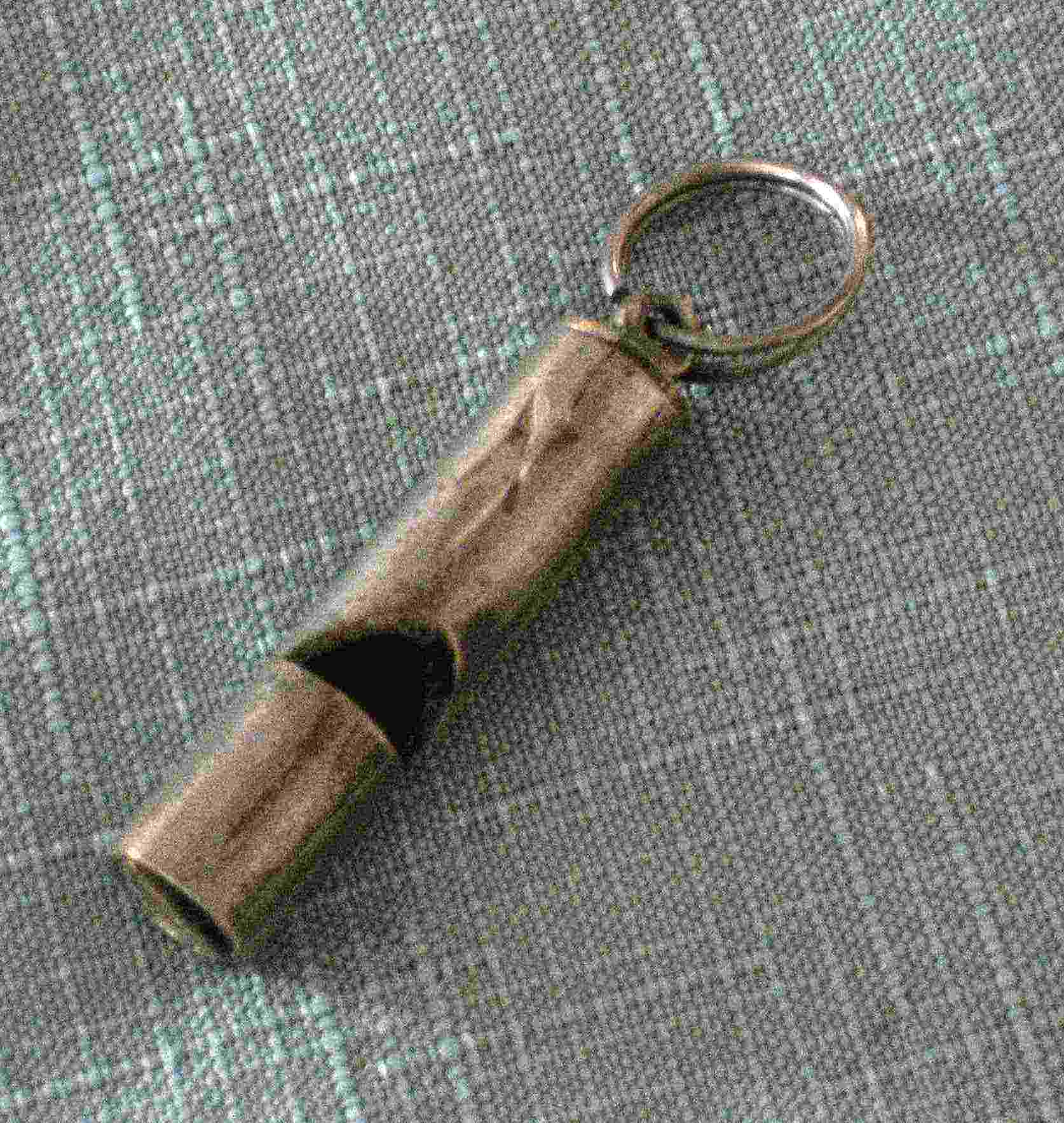 |
|
 |
Clockwise from left: -
Chargers for PDA, backup PDA, GPS,phone, and camera
Below and foot of page:- Emergency whistle - Hiking stick made from old-folks' walker,disassembled - Assembled hiking stick -
Cornish hills in every direction
- Citroen 2CV ("Deux chevaux") |
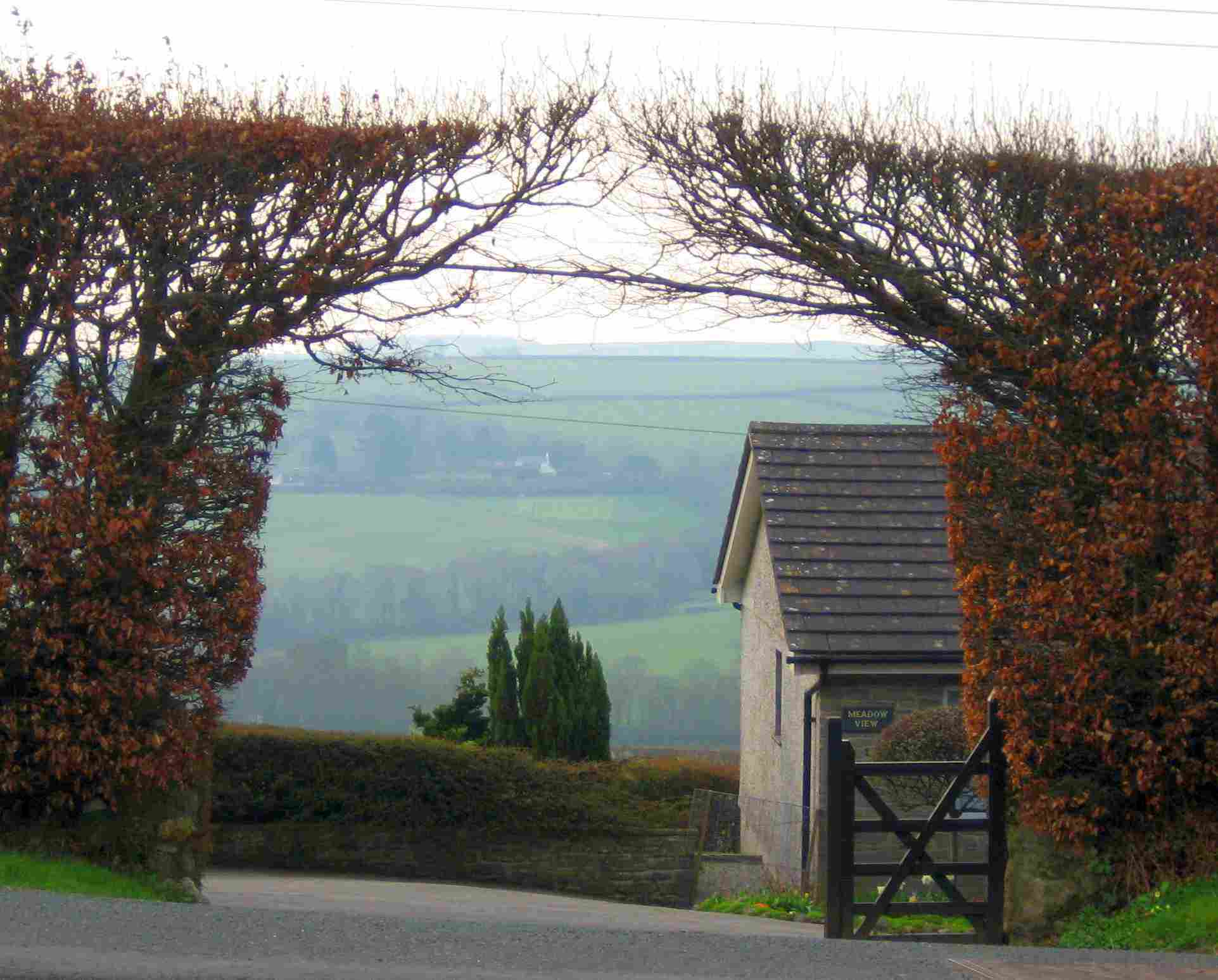 |
|
|
Cornwall seemed so
large. Five days and still in the same county did not feel
like enough progress. Today, in perfect weather but with a pack that
seemed heavy all day, I managed 13 miles of the A390. I had
thought that the A-roads would be graded more gently than lesser roads,
but in this case it seemed they had widened the road but kept the
azimuth and grade. In fact, I have a suspicion that some
A-roads are just B-roads with a new white line or a new style of center
reflector, renamed to fulfill a Minister of Transport’s commitment to
more A-roads. Now how could anyone be that cynical?
For me, one of the surprises of modern England was the prevalence of French cars, especially in the southwest. Of course, this region is closer to France than it is to London, and it has cultural ties through a common Celtic heritage to France and for that matter, Spain, Wales, Ireland and Scotland. As well, the Cornish like to feel themselves apart from England. French cars have almost totally faded from American roads, having failed to penetrate the market on each of several attempts. In England, even beyond the southwest, they seem to dominate the smaller end of the market. British cars, except for premium marques like Jaguar and Land Rover, seem to be fading here, with Vauxhall (GM) and Ford the only British mass-sellers to compete. This reminded me of my British days when I owned at times an Austin Mini and at times a Ford Anglia. Both had short lives, rusting as fast as they decayed mechanically, which is to say astonishingly rapidly. After four years, you could stick your thumb through the sheet metal in front of the Mini’s windshield – this becoming the standard way by which to assess advancing rust on a Mini. On the Ford Anglia, you didn't need to use your thumb at all; the windshield wiper drive shaft had a tendency to just drop as soon as the sheet metal support rusted through. Soon, the Ford Anglia had to have its frame welded to keep it structurally sound. After that disgusting matter was accomplished with a big chunk of my meager salary, the A-pillar (yes, the structural beam which supports the roof and holds the front door on, stiffening the whole car, and generally carrying many of the loads that don’t go through the also-rusting floor) . . . rusted right through to the point that it actually sprang apart. That was about the time that the “big-end” in the engine started knocking, but then the car was all of four years old and had 44,000 miles on it. In fact, the car’s design was a triumph of planned obsolescence over any obligation to provide value. This was motivated in part by rampant union demands, nearly always acceded to in those years, which made labor costs so high that there was no alternative to producing rubbish if one was to sell the cars at a price people would pay. So high were car worker salaries, along with those of many other union workers, that professional salaries got quickly behind in a period of inflation caused in large measure by these same union labor costs. Later, Edward Heath and Margaret Thatcher, both Conservative Prime Ministers, were to stand up to the unions, and usher in a period of prosperity that continues to this day under a now-moderate Labour Government. But when I left England, even three engineering degrees would earn me only about two-thirds of a car worker’s salary - and leave me driving one of the sh--mobiles that I’ve just described. Then, one day, I was doing something to get my Ford going that a generation of British car owners of the time will recognize. Let me preface it my pointing out that most British cars had Lucas electrical systems, which also lacked quality so much that car enthusiasts know Lucas as the “Prince of Darkness” to this day. A Lucas starter motor uniquely possessed the most amazing characteristic of developing a “dead spot” from which it would not operate even if all the voltage in heaven were applied to it. Needless to say, this position was reached randomly, which was to say that it always occurred on a dark and rainy night. In fact, studies show that ten out of nine occurrences occurred then, the remaining one occurring when it was snowing or icy. So what to do then? Inexperienced owners then rushed for help, sometimes paying a worker of another union a good sum for the repair. But experienced owners had learned the solution, which wasn’t really a repair at all but a “workaround”. To move the starter motor from its inoperative dead spot, you put the car in gear (fourth gear worked best), and then pushed the car a tad, which required quite a hard shove because you were rotating the engine also. But, after doing that, and getting back into the car and remembering to place the gear shift into neutral, the car then started every time. And so it was, one dark and stormy night, when I was straining my back with this maneuver, while also contemplating the rusted-through A-pillar, the welded frame, the big-end knock, and the futility of planning for a new car while my salary prospects were dismal . . . that the solution came to me in a flash: “North America”. Soon enough, Jennifer and I were there, and earning three times what I would have done in England, and driving a nice-enough Plymouth Valiant at the same time. It was not Britain’s finest hour. Having said all that, I love the British. You would say that I’m an Anglophile, except that the word does not also embrace the Scots, whom I also love. (I will skate by the Welsh and Irish only because I know them less well.) One of my particular likes is British wordiness. Often enough, a deep understanding of language generally, and the nuances that specific words convey, enable political and social discussion that goes beyond sound-bites, allowing for substantive debate. An interviewee on television might well say, for example, “I’m not sure that the correct word for that is abcde. I would rather say, could lead to fghijk if left unaddressed.” At other times, the wordiness is just a cultural oddity. A reflection on the correctness of one’s choice of words is a perfectly acceptable aside during a flowing discussion. (In contrast, Americans would say it was superfluous, evasive, cissy and downright weird.) A well-known case of this arose when Prince Charles and Diana announced their engagement. The press asked if they were in love, to which Charles responded in the affirmative - but then sought to qualify his words with the famous add-on “whatever in love means”. Words like those would not come easily to an American tongue. You can quite easily discuss the choice of words with a relative stranger. With people you know it is quite routine! At the tender age of 17, my English landlady, a Mrs. Manning with whose children I am sporadically in touch with to this day, was upset when I had washed a sweater in my room. A heated argument ensued, and she demanded that I apologize or leave. Now, asking a 17-year old to apologize is a pretty futile request, so things got even more heated, and she called me a boor. At that moment of crisis, the conversation turned to a discussion of the word boor, to make sure that I understood that she meant boor, and not boar, bore, or boer (South African for Dutchman or farmer). This having been appropriately clarified, she duly asked me to be gone by next Friday, and I was – and with a more precise appreciation of my shortcomings. Of course, the British interest in the right words is a reflection of an unrivaled literary heritage. Per one recent source, there are 20% more book titles published in the U.K. annually than in the U.S., despite having only one-fifth the population, and book sales per capita outstrip those in the U.S. by 40%. Homework in schools more often requires a written answer than a multiple-choice checkmark. Speaking anecdotally from my youth, quite a few grammar school children learned Latin and Ancient Greek, nearly all students studied several Shakespeare plays and Dickens' novels, as well as a goodly number of more recent writers like Austen and Conrad. Paradoxically perhaps, I'm not suggesting that literature published in the U.K. is of a higher quality than in the U.S., which has many great writers also, but that literary interest reaches across a broader spectrum of society. No one exemplifies that British literary reach more than Dylan Thomas, who was brought up speaking Welsh as much as English, and yet published his first book of poetry before he was 20-years old. But, as to literary reach, what happened later is the more remarkable - especially when you consider that his poems are not all "easy-reads" in that they often lack rhyme, alliteration or even popular themes. Yet, the BBC broadcast his poetry over 200 times, a generation of schoolchildren studied him, his poems were set to music, his plays produced, a Beatles album depicts him on the cover, pub signs show his picture, and he has a tablet in "poet's corner" at Westminster Abbey. Now, lest anyone think I'm implying some sort of literary philistinism in the U.S., let's remind ourselves that Dylan Thomas's success in Britain - as with a great many British writers - was due in part to his acceptance and even fame in America. Indeed, Dylan died in New York - as an aside, apparently after bedding American poet Peter De Vries's wife, the poet husband exacted revenge by winning a drinking contest with Thomas in a New York pub. Rather, I'm just underlining the literary heritage of the British, and trying to explain that it manifests itself in ordinary life. Thus, Mrs. Manning's discussion of boor, bore, boar, and boer, even as she evicted me, wasn't really unexpected. In fact, being literarily inclined myself, it was an "up" point in a "down" day. Now, as the French and other cars zipped past me on the A390, life still had its ups and downs. But today they were physical. In fact, the ups and downs were continuous and quite demoralizing, because there were scarcely any level stretches of road at all. Departing St. Blazey and approaching Penpillick, there was a mile-long upgrade of 17 percent or so, fatiguing in the extreme. Looking back at an escape ramp for vehicles with faded brakes, I could see St. Austell Bay glistening in the distance - and beyond I could envisage another escape - an escape to my home in Florida. There, with my dear wife and comforting cat, I could happily be sipping Chardonnay on my back porch on the edge of Coquimba Channel besides Tampa Bay. As St. Austell Bay receded behind me, I also realized that I would probably not see the sea again for quite a while. After further ups and downs, another 17-percent grade, this time a long descent, led me to the charming 12th-century town of Lostwithiel. Here I theorized why the town has lasted so long: the steep upgrade to depart the town deterred arriving visitors from ever leaving. These hills must be totally different from the point of view of a car driver, who merely adjusts the angle of his foot on the accelerator pedal. Not missing a beat, a modern car then climbs each of these hills in the time it takes to say "see you soon" on the cell phone - or flick cigar ash into the eyes of a struggling hiker. My knee pain seemed to respond well to a single 200-mg Ibuprofen (Motrin) pill, once it kicked in. This was encouraging, because I could probably sustain this modest dosage for a long while. Of concern today was the weight of the pack, whose straps still did a number on my shoulders. I think the many pack straps needed some adjustment, because the waist belt sat too low to relieve the pressure of the straps. I spent a lot of time contemplating what further lightening of the pack might still be possible. It was warm today. Though hardly spring, it was warmer than many a summer day. Now it’s a truism that the British love to discuss the weather – not so much for what’s actually said, but as an icebreaker (so aptly named). Those of us who can enter these conversations from a foreign perspective can find this amusing. My wife and I will say to each other – in jest, borrowed from British parlance – “It’s a nice day for it”. The “for it” is an indistinct reference to whatever one might use fine weather for. So now, with my eyes twinkling, I greeted people with “Good morning” and hoped they would utter the expected response, “A nice day for it”, which would make me smile inwardly as I thought “gotcha”. So, in trudging out of Lostwithiel, a task made additionally sweaty by the upgrade, I was pleased to stop and converse with a storeowner sweeping the sidewalk in front of his store. “Good afternoon,” I said. Initially, he just rested on his broom, and eyed me cautiously. (The British are sometimes wary of strangers who open conversations in such an intimate way.) So I went on: “Nice day for it, isn’t it?” At this, the storeowner must have picked up on my mid-Atlantic accent, because he replied: “Yes, nice and warm. It’s because of the global warming you Yanks are causing.” Thus put in my place, I continued up the hill. I was heartened to talk to my wife Jennifer in the evening, and also my pal, Gerald. I also managed one wifi hook-up, but not a comfortable one, because I had to do so standing outside the closed pub where the wifi service was available. Doing email in a standing position on the street with a pack on is an uncomfortable experience. Nevertheless this gave me an opportunity to read my email, and send a message to my friend, John Gilbert, in Somerset to let him know I was on my way. I’d reach Somerset just as soon as Devon was behind me. Which couldn’t start until Cornwall was behind me. Which still hadn’t happened. |
|
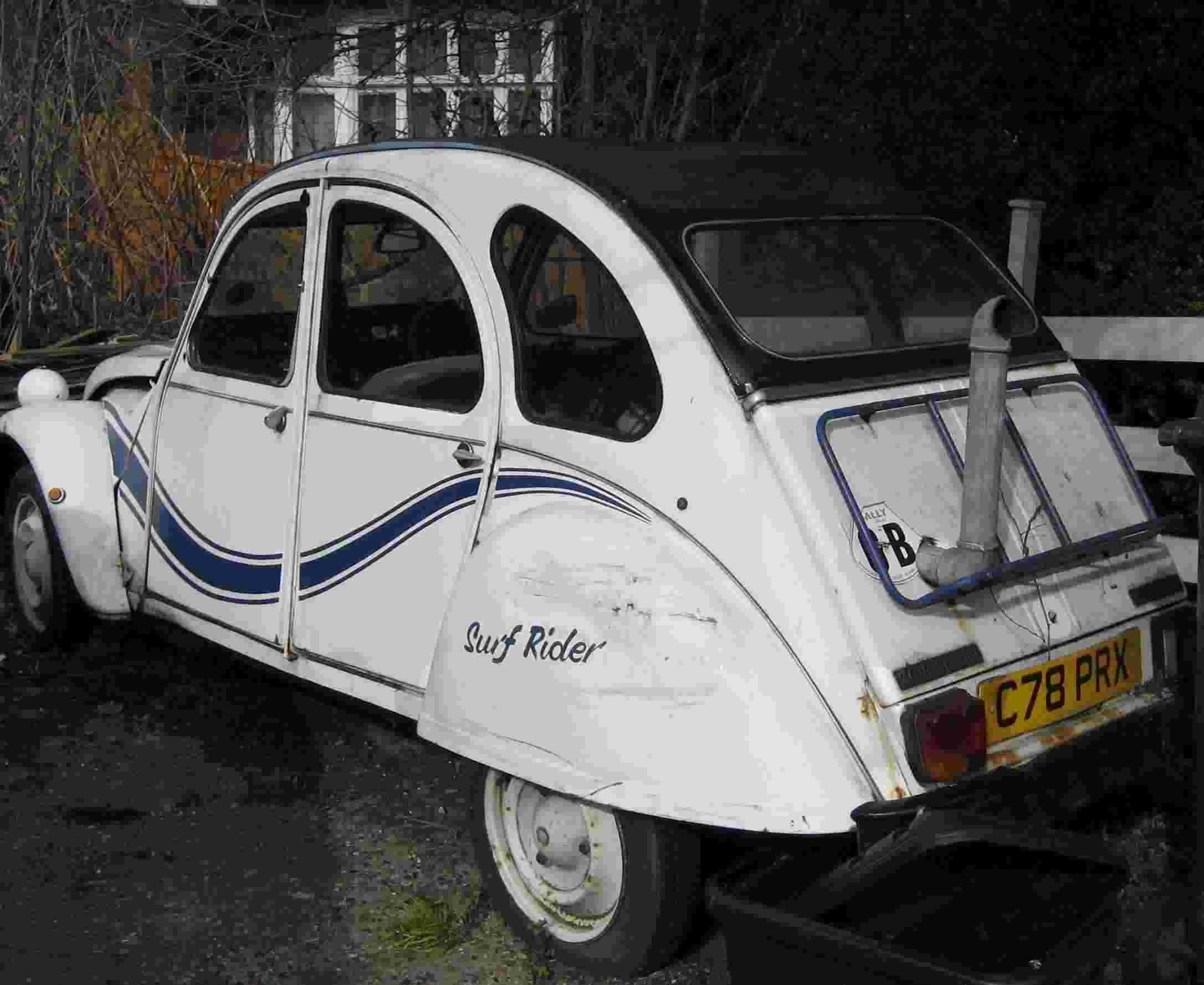 |
|
| Day N4 © 2007 and 2008 Daryl May Day N6 | |